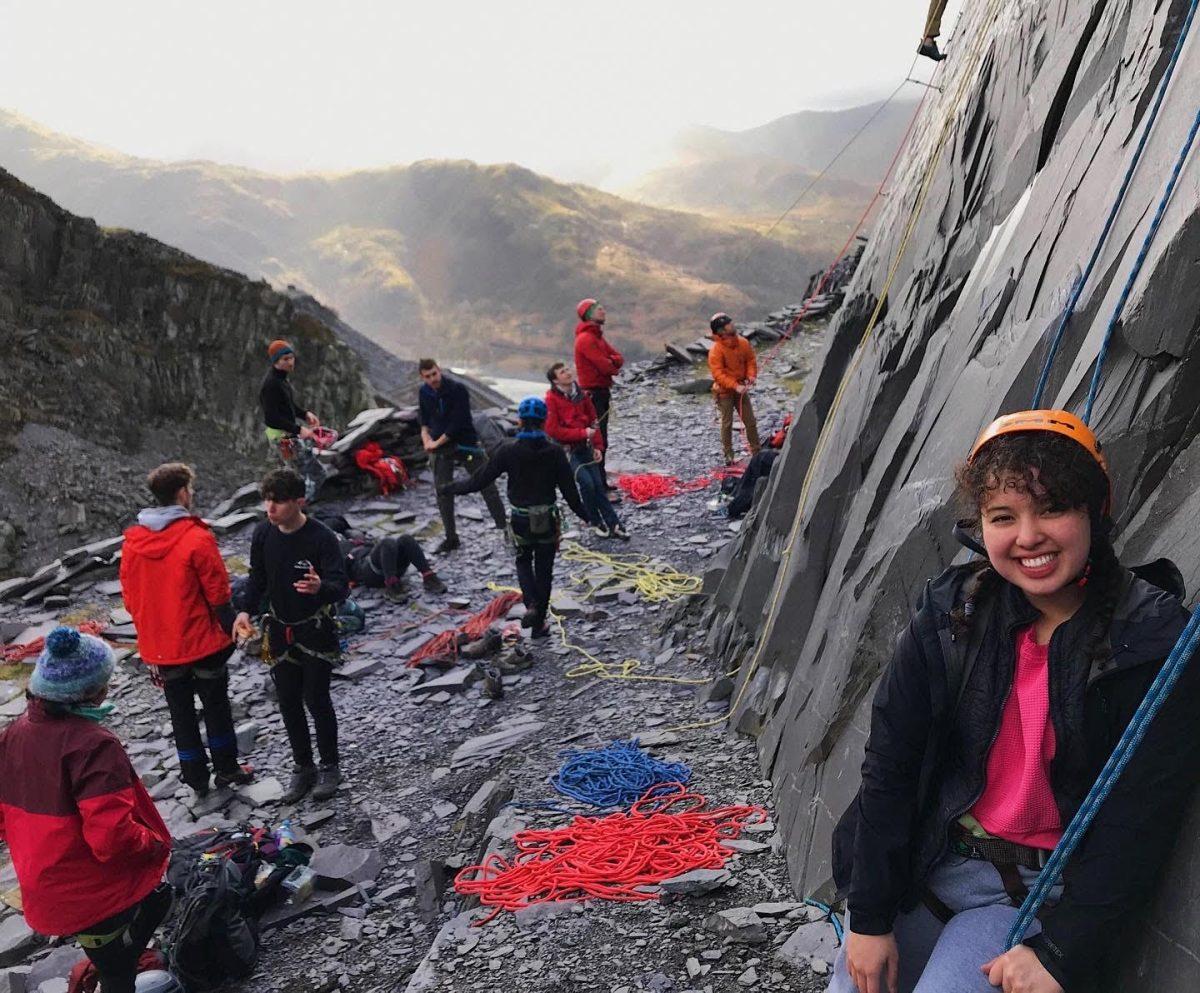When biomedical engineering junior Vivian Martin returned from her exchange trip in the United Kingdom about three months early due to COVID-19, she knew she would need to self-quarantine.
Martin returned from her study abroad on Sunday, March 22 and immediately self-isolated in an attempt to keep some of her immunocompromised family members safe. Soon after her return, Martin learned about the global pandemic first-hand.
“It’s still a bit up in the air on how I contracted [COVID-19] but I did travel internationally,” Martin said. “Odds are I most likely got it from the plane or the airport. But it is a bit peculiar, because the roommates I had, that I was traveling with, have not had the same experience as me at all.”
Martin was first tested for COVID-19 one day after her return to the United States at Legacy Community Health Clinic in Houston.
“I would say the process of getting tested was very painless for me; it’s the process afterwards that is so difficult,” Martin said.
Martin received negative test results shortly after her first test, but her self-quarantine quickly became more complicated.
During her first week back in the U.S., Martin began to develop symptoms. It started with a fever on March 26, and by the next day, she said she experienced her worst symptoms.
“I refrain from telling people it feels like the flu because there are other symptoms that don’t feel like the flu,” Martin said. “But that worst day felt like a bad flu to me, and that’s why I wasn’t entirely sure if it was coronavirus just because I wasn’t coughing or having the symptoms that they were talking about.”
Martin’s worst symptoms lasted for only one day, but she soon developed others over the weekend that she had never experienced before.
“It wasn’t that it was difficult or unpleasant, but the weirdest symptom was losing taste. Every drink and even ice cream just tasted like water,” Martin said. “Another symptom I experienced was when I would breathe in it would almost feel as if there was ice in my sinuses. I would say if anybody is feeling symptoms like these, that should be a red flag.”
Martin’s odd symptoms soon subsided and by April 2 she was back to feeling normal. Shortly after, Martin took an online health screening in Fort Bend County and traveled to a drive-thru testing center that was organized by Access Health Clinic and the Fort Bend County Health Department for her second COVID-19 test.
“I had already been feeling better by that point and I took that test because I knew that it was going to take them a few days for it to get back to me, but I expected it to be negative and I was just kind of making sure because I knew I was set to get out of quarantine,” Martin said.
This time, the test came back positive.
Since receiving her latest results, Martin said the only symptoms she has experienced are similar to her usual asthma symptoms, although she is unsure if the coronavirus has exacerbated them.
“I feel like I’m pretty much recovered, but I can not say that for sure because even when I took the test on Thursday, which came back positive, by Monday I was feeling pretty much fine,” Martin said. “For it to come back positive, even though my symptoms were gone, I’m not really sure if it would come back positive or negative at this point, but I feel okay is all I can say.”
Martin remains in self-quarantine awaiting a call from the Fort Bend County Health Department to schedule her third COVID-19 screening.
During these weeks of uncertainty, Martin said one thing has remained steady: support from her university.
“They got back to me after I had returned and they called me and said, ‘Hey, we are going to pay for your stay, so whatever you’re booking in the hotel, we will reimburse you or you can come and stay in College Station so that you’re near us or if that’s not possible for you, you can stay wherever you’d like,’” Martin said. “On top of that, they’ve checked up on me every day or two. I’ve had multiple people call or text me and I’ve also gotten contacted by Student Health Services checking up on my health. So, overall, there’s been a lot of support from A&M staff.”
Martin said she is very thankful for A&M’s support during her time of need, and she urges those self-isolating to seek comfort in those around them.
“I’d say the key to getting through it, even if you don’t have coronavirus, going through quarantine I think you need to take this time to strengthen your relationships around you and just take care of your body, to help it fight both mental and physical stress,” Martin said.
Editor’s note: Of the seven Texas A&M students who were on the reciprocal exchange trip to Swansea University in the U.K., Vivian Martin said she is the only one who has presented symptoms of COVID-19. She also contacted the person she sat next to on the plane and they have not presented symptoms either.










